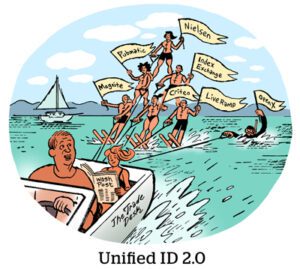 Here’s today’s AdExchanger.com news round-up… Want it by email? Sign-up here.
Here’s today’s AdExchanger.com news round-up… Want it by email? Sign-up here.
Embracing Automation
More than 98% of online publishers in the US are taking a data-driven, programmatic approach to audience engagement, according to a new Winterberry Group report released on Wednesday. For the study, Winterberry Group partnered with the IAB to survey more than 200 marketers across the globe. Abroad, the percentage of publishers pushing for automation is less impressive, at around 75%. The report goes on to rank publishers around the world in five key segments: programmatic comprehension, transparency, access to data, access to technology and standard metrics. Read the release. And download the report.
Risky Business
Forbes Chief Insights Officer Bruce Rogers called native advertising “incredibly controversial” during a panel discussion at the Association of Data Driven Marketing and Advertising in Australia on Tuesday. Without clearly marked native content, he said, publishers risk “denigrating the brand.” As Forbes and other premium publishers continue to weave sponsored content into their pages, Rogers said carefully curating partners and labeling their contributions is key. Read on mUmBRELLA.
More Programmatic Funds
Programmatic ad platform Dstillery (née Media6Degrees) announced that it has raised an additional $24 million in venture capital ($48 million total) and promises to innovate with cross-device targeting in mind. In addition, the company gave a wee window into their momentum: “Revenue in the first half of 2014 was up 50 percent from the prior year, while staff grew by 40 percent. Dstillery was recently selected as a premier partner by both Twitter and LinkedIn.” Read more. The company announced a fraud patent in May. And read this July AdExchanger article with Dstillery’s chief data scientist, Claudia Perlich.
Palantir Buys Poptip
Palantir, a large-scale data mining company whose clients include the FBI and the CIA, acquired startup Poptip on Wednesday. Poptip specializes in analyzing data from Twitter, taking unstructured data and producing statistics that help brands track trending conversations and target key audiences. The news of the acquisition surfaced on Tuesday, in a Poptip company blogpost, and pricing and terms of the deal have not yet been disclosed. Palantir, founded in 2004, has raised $900 million to date and its software was purportedly used to locate Osama bin Laden. But what would such a high-level data mining company such as this want with Poptip’s Twitter expertise? Maybe social data is more valuable than we thought. Read on via WSJ.
Paper Not PowerPoint
“Too many of our sales calls end up with both parties simply falling into their assigned roles,” observes Doug Weaver in this week’s installment of The Drift. “Both the seller and buyer know they have to have a certain number of meetings, and they end up in the business equivalent of a bad blind date.” Ditch the snooze-worthy PowerPoint, advises Weaver. “If you’re seeking a real, genuine conversation, then a piece of paper with some observations about the account is a better bet.” Read on.
R.I.P. Facebook Gifts
Facebook is ditching its gift services, the company announced Tuesday, in a pivot to fully embrace its shiny new “buy” button. Facebook Gifts was awkward at best: “It’s so-and-so’s birthday, your second cousin’s best friend, send them a gift card!” However random, Facebook learned a lot from its Gifts program, which launched in 2012. The company will funnel those consumer insights into its other marketing ventures (Autofill With Facebook, Custom Audiences, Offline Sales Measurement). Read more.
Global Gaming
On Wednesday, Chartboost struck a partnership with mobile gaming company Chukong Technologies to expand global monetization for developers. San Francisco-based Chartboost offers a revenue platform for mobile games, and Beijing’s Chukong is among China’s largest mobile entertainment companies. The partnership is a nod to China’s growing mobile market, which is projected to hit a $3 billion valuation by year’s end. Read the release.
Info(bot)graphic Thursday
Digital forensics specialist Augustine Fou cranks out an infographic that says bots are nocturnal beasts who prefer to visit when everyone’s asleep. See it now.
Earnings
You’re Hired!
But Wait. There’s More!
- Pinterest Acquires Icebergs, The Pinterest For Creatives – TechCrunch
- Exponential Debuts New Video-Enabled Ad Formats – press release
- Big Brands Are Driving Facebook And Twitter’s Mobile Ad Explosion – Adweek
- Medium Makes Its Move Into Native Advertising – Digiday
- Video Resolution Significantly Affects Digital Ad Engagement: Study – press release














